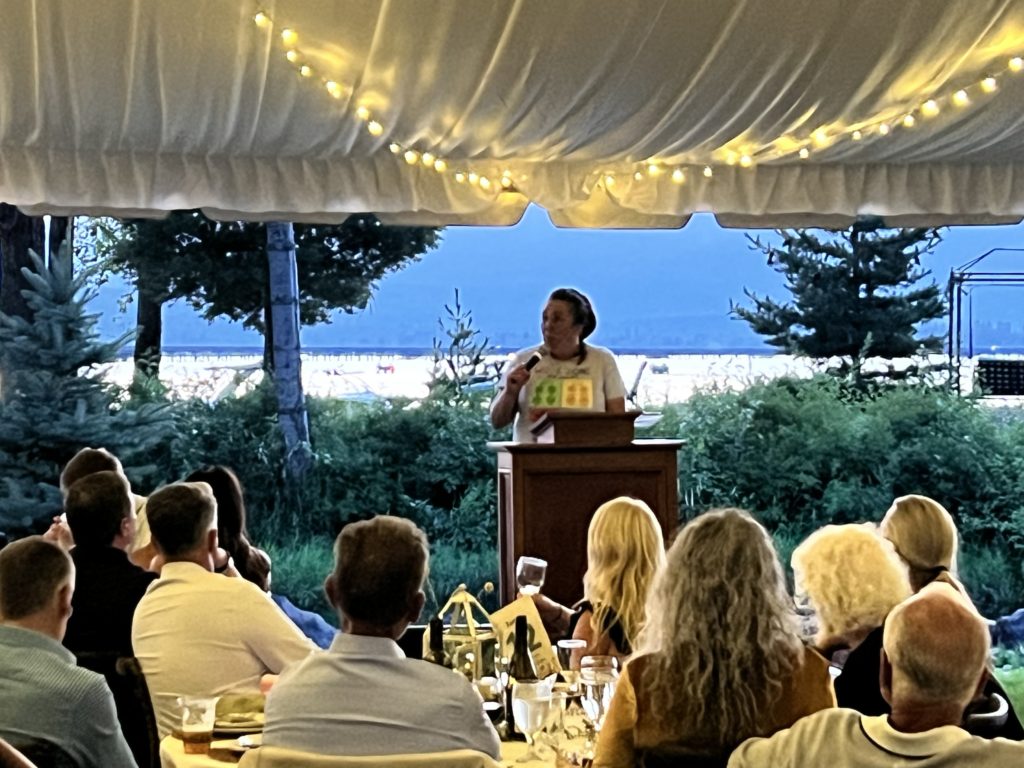Picture this: A child walks into the classroom carrying the weight of a difficult morning at home. Or maybe he or she feels overwhelmed by a math lesson, or is struggling to make friends. These are big emotions, and without tools to process, children can shut down and act out. When this happens, it affects everyone—the struggling child, their classmates, and their teacher.
This scenario, as described by Emily Norton, teacher for exceptional children, plays out daily in classrooms across the nation. Teachers face an impossible choice between supporting one struggling student or continuing instruction for the other 24 children who are ready to learn.
We are excited to announce this year’s strategic initiative, the funding of a dedicated behavior specialist for the Lake Pend Oreille School District.
During our strategic planning process, we hosted a focus group with our district principals and assistant principals to learn what they needed most. The biggest takeaway was their deep-rooted need and desire for behavior support in the classroom.
Behavior issues affect a very small percentage of our students, yet they impact everyone: the teacher, the student body, and families at home.
This initiative directly supports PAFE’s first strategic goal: “Invest in ensuring students’ readiness to learn,” recognizing that for students to succeed academically, they must first be physically and mentally set up to learn.
The Zones of Regulation: A Foundation for Emotional Learning
The district currently uses the “Zones of Regulation,” a research-based approach that gives children the language to identify their feelings and the tools to manage them. While effective, Emily notes that implementing the program requires significant time and individual attention that classroom teachers often can’t provide while managing full classes.
“Inherently, children hold it in until they inevitably explode. But there’s a better way,” Norton says. “Zones of Regulation gives children a voice, a choice, and most importantly, self-regulation. It’s a great start, but we need more because it requires time and attention.”
Norton speaks from experience. As a former classroom teacher, she understands the daily reality educators face. “I lived this reality. I faced the heartbreaking decision between helping one struggling child or teaching the other 24 students who were ready to learn. No teacher should have to make that choice alone.”
Building Capacity for Deeper Support
The dedicated behavior specialist will take the Zones of Regulation implementation to the next level, providing intensive, individualized support that classroom teachers simply cannot offer within their current constraints.
The impact extends beyond individual students. When one child’s emotional needs are addressed effectively, the entire classroom benefits.
Real Impact: “They Make Me Feel Seen and Safe”
Emily has already seen how this approach is transformative. She shares the story of a young boy who was struggling significantly, acting out and disrupting class. Everyone was at a loss for solutions.
“We introduced him to the Zones, and the transformation has been remarkable,” Norton recalls. “Just last week, I asked him why the zones have been so helpful. His answer almost made me cry: ‘They make me feel seen and safe.'”
A Strategic Investment in Student Success
PAFE’s investment in a behavior specialist aligns with our strategic focus on student readiness, particularly addressing behavioral and mental health support systems that foster effective learning environments. The initiative recognizes that when students feel emotionally supported, they can focus and learn.
“When we teach children that all emotions are valid and that there are healthy ways to manage them, we give them the ability to stay safe and connected in their learning environment,” Norton notes. “This isn’t just behavior management. This is life skill building.”
The benefits extend beyond the school day, with families reporting positive changes at home when children consistently use these emotional regulation tools.
Supporting the Whole Child
We thank all our educators and supporters who help make this possible. This investment represents more than a single program. It embodies PAFE’s commitment to supporting the whole child from birth to age 18. By ensuring students have the emotional tools and support they need to be ready to learn, PAFE is helping create classroom environments where every child can thrive.
At a time when support for public education is shifting due to changes at the federal level and the emergence of new school choice initiatives statewide, investments like this demonstrate the vital role that community-based support plays in strengthening our public schools. When we fill critical gaps and provide essential resources that enable both students and teachers to succeed, we showcase the power of what’s possible when communities rally around their local schools.
Our strategic initiatives, early childhood literacy programs, and teacher grants support Lake Pend Oreille School District educators in bringing creative and innovative programs to the classroom. Because they are teacher-led ideas and not mandated by outside parties, they have a far more significant impact on the students. If you’d like to support this work, you can donate here.
